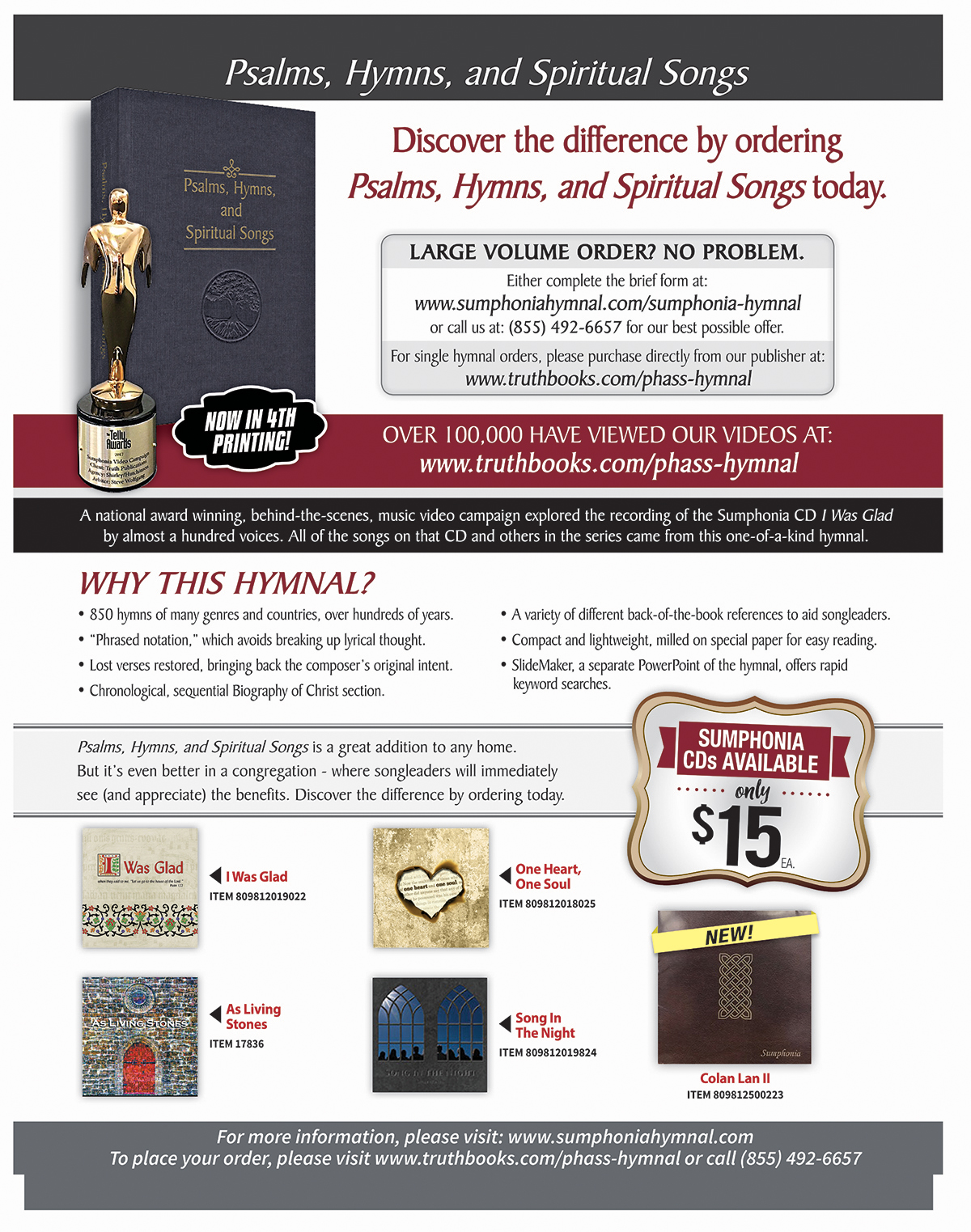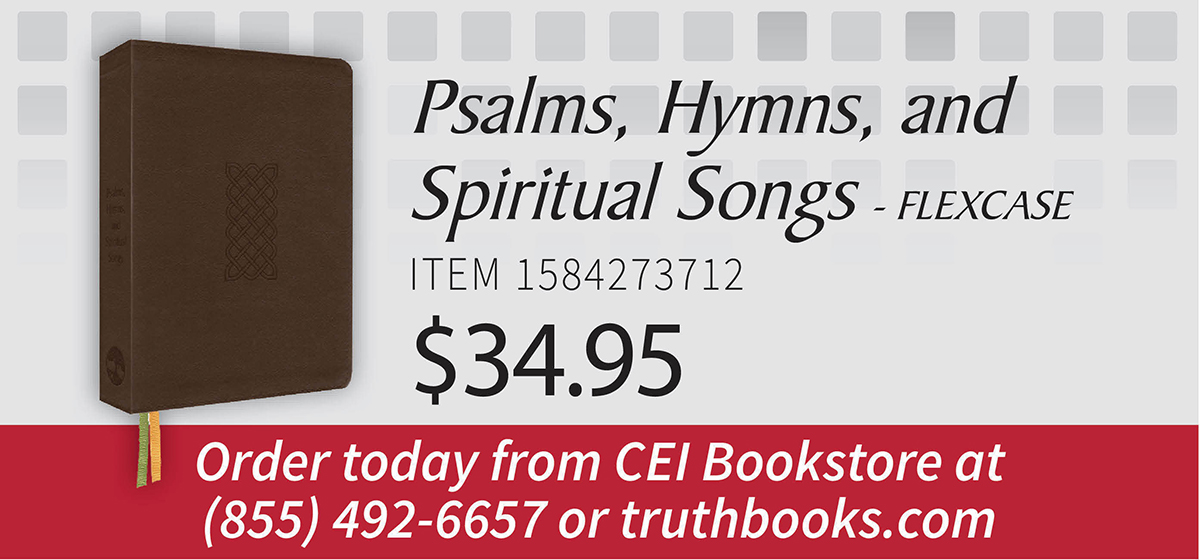

by Steve Wallace
Synopsis: Exploring the overlapping terminology employed in John's gospel, Steve shows that faith in John 3:16 requires more than mere mental assent.
The gospel of John uses different names for the same individual or beings. Simon was called "Cephas," which is by interpretation "Peter" (1:42). The Holy Spirit is simply called "the Spirit," "the Spirit of truth," or the "Comforter" (or "Helper," NKJV; NASB; 7:39; 1:32; 16:13; 15:26). Satan is also called "the devil" and "the prince of this world" (13:27; 8:44; 16:11). Of those lost eternally, it is written that they "shall not see life," "will die in their sins," or that they would come forth from their graves "to the resurrection of condemnation" (3:36; 8:24; 5:29).
Such use of different words or phrases in reference to the same person, event, or thing does not surprise us as this is a part of everyday life. Mothers are called mom, mommy, ma, mama, etc. We see agreement in meaning despite the difference in terms. With this in mind, let us now consider three passages from John culminating with the most well-known verse of the Bible, John 3:16.
Jesus said, "My sheep hear My voice, and I know them, and they follow Me. And I give them eternal life, and they shall never perish; neither shall anyone snatch them out of My hand" (John 10:27-28).
Jesus is "the good shepherd" (v. 11). His sheep hear His voice and follow Him, i.e., there is a progression in their response to His words. They follow His lead (as in vv. 3-4). They cannot follow the voice of strangers and continue following Him at the same time (v. 5; Matt. 15:14). As a result of their following Him, He says, "I give them eternal life" (v. 28). Let us now look at another passage from the gospel of John which teaches the same thing.
"Most assuredly, I say to you, if anyone keeps My word he shall never see death" (v. 51). "Keep" is the same word as "observe" in Matthew 28:20, where Jesus said, "Teaching them to observe all things that I have commanded you…" "Keep" also corresponds with what He said earlier in John 8: "If you abide in My word, you are My disciples indeed" (v. 31). "Abide in My word" and "keeps My word" shows clear agreement between these two verses.
Further, these verses agree with other clear texts of God's word: "Not everyone who says to Me, 'Lord, Lord,' shall enter the kingdom of heaven, but he who does the will of My Father in heaven" (Matt. 7:21). "Though He was a Son, yet He learned obedience by the things which He suffered. And having been perfected, He became the author of eternal salvation to all who obey Him" (Heb. 5:8-9).
"Keeps my word" (John 8:51) agrees with "does the will of my Father" and "obey Him." "Shall never see death" (John 8:51) agrees with "enter the kingdom of heaven" and "eternal salvation." Beyond this, we see harmony between John 8:51 and 10:27-28. The one who "keeps My word" (8:51) is the same as the sheep who "hear My voice" and "follow Me" (10:27). Also, there is harmony in the resulting message of both passages: they "shall never see death" (8:51) and "I give them eternal life" (10:28). We should expect such agreement. All these words are inspired by the same Spirit (2 Tim. 3:16-17). Now, let us turn to another text that John penned.
"For God so loved the world that He gave His only begotten Son, that whoever believes in Him should not perish but have everlasting life" (v.16). God's love for the lost people of this world led Him to send His only begotten Son, Jesus the Christ, to die for their sins. Sinners could not be saved without the blood He shed on the cross (Matt. 26:28; 1 Tim. 2:5-6)
As we look at the three passages from the gospel of John that we have examined, we see agreement in the promised future blessings of which they speak. "Give them eternal life" (10:28), "never see death" (8:51) and "have everlasting life" (3:16) are three different ways of saying the same thing. There is harmony in the promises of these verses.
What about conditions for receiving these blessings? Is there agreement in the words "believe" (3:16), "keeps My word" (8:51), "hear My voice" and "follow Me" (10:27)? There is progressive action in the language of 8:51 and 10:27. "Believes," in John 3:16, is a verb in the present tense. It describes customary or habitual action (Dana and Mantey, 183; Burton, 8-9). This harmonizes with the progressive action found in 8:51 and 10:27. It also harmonizes with the actions of believers in other passages (Heb. 10:39; 11:7, 30; Mark 16:15-16; Acts 8:12; 18:8).
We close this brief study with agreement on the destiny of the saved. They shall be given "eternal life," "never see death," and "have everlasting life." We also have agreement regarding the conditions necessary for eternal life. One must "hear Christ's voice" as revealed in His word and "follow" Him. One must "keep His word." One must "believe." However, to have agreement in these last three sentences, we cannot change "believe" to "believe only," as many religions erroneously do.
Dana, H. E., and Julius R. Mantey. A Manual Grammar of the Greek New Testament. New York: MacMillan Publishing, Co., Inc., 1927, 1957.
Burton, Ernest De Witt. Syntax of the Moods and Tenses in New Testament Greek, 3rd ed. Edinburg: T&T Clark, 1898.
Author Bio: Steve has worked with the church in Round Lake Beach, IL for almost four years. He and his wife, Mary, have been married 33 years. He can be reached at alvincarl1@att.net..

